
the grossura by matheus
decolonial design
the "grossura" by lina bo bardi in a new approach
© Museu de Arte Moderna da Bahia – Geraldo Muniz’s photo. Reminicências Museu de Arte Popular exhibition

© Museu de Arte Moderna da Bahia – Geraldo Muniz’s photo. Reminicências Museu de Arte Popular exhibition
The research project "Design and public interest" begins, which had the Italian-Brazilian architect Lina Bo Bardi as its focus
Obtains funding to do field research and find handcrafted objects that relate to Lina's "grossura" aesthetic
He moved to Milan through the "Ciências Sem Fronteiras" program where he discovered his passion for furniture
"Design and Brazilian popular culture: The challenge of designing from autochthon handicraft" is published which is the result of research on Lina and handicraft
Graduated in Design from the Federal University of Minas Gerais
Launches the Alaká armchair by the furniture factory América Móveis alongside renowned names in Brazilian design such as Zanine de Zanini
The master's degree in Design begins at the renowned State University of Minas Gerais
Obtains the title of master through the thesis "Design, Sociedade and Pluralidade: os artefatos industriais sob perspectivas contra-hegemônicas"
Finishes "The grossura by Matheus" tables collection inspired by the handcrafted pieces he acquired during his field research through the northeast of Brazil
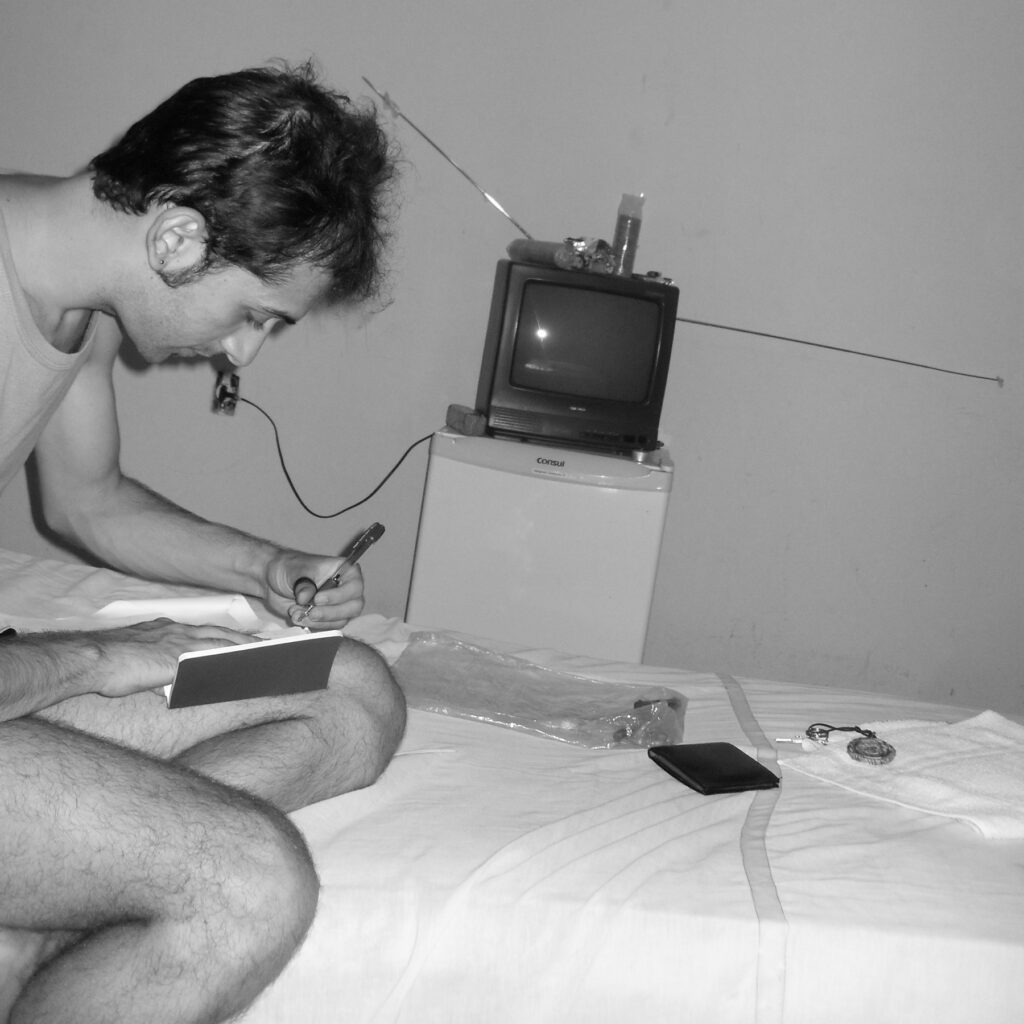
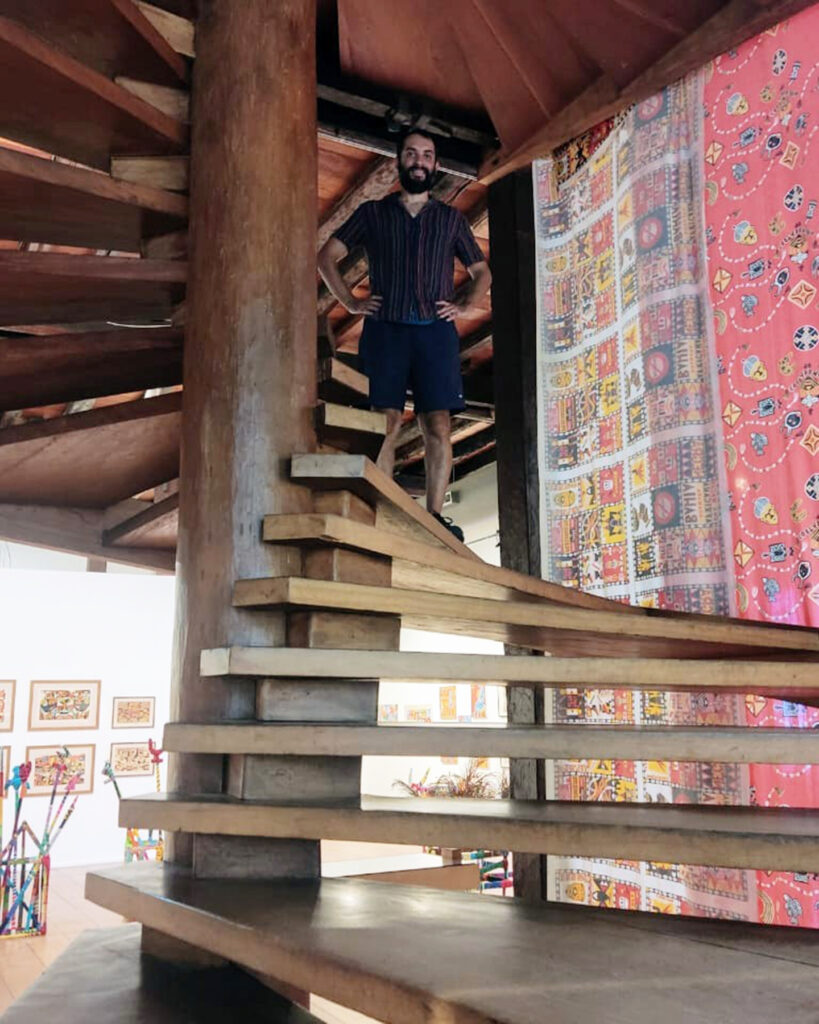
The wheels and the entire assembly that supports the driver and loads have been simplified into a single piece that splits between the two side bases and the top. Also, the oxen underwent the same simplification process where the horns and yoke are represented by a beam joining the front of the oxen with their back. The table is dynamic with the part representing the oxen going in and out of the cart, therefore it is possible to create different possibilities of use for the furniture.
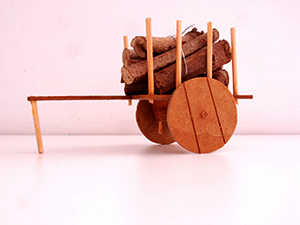
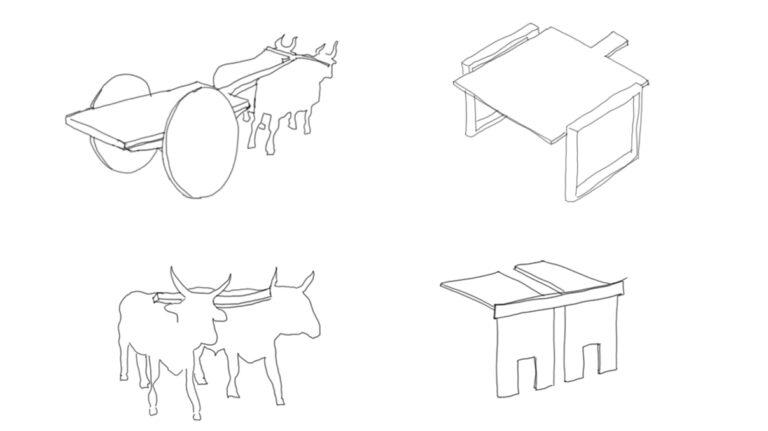
His huge mouth and horse mane were the main elements of the Brazilian figurehead introduced in the design. Its colors, black and white, are maintained and its shapes are summarized in a few geometric strokes relevant to the structure of the table. Finally, the tone of the body is walnut and has been designed to resemble the woods that craftsmen normally use.
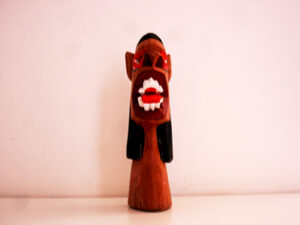
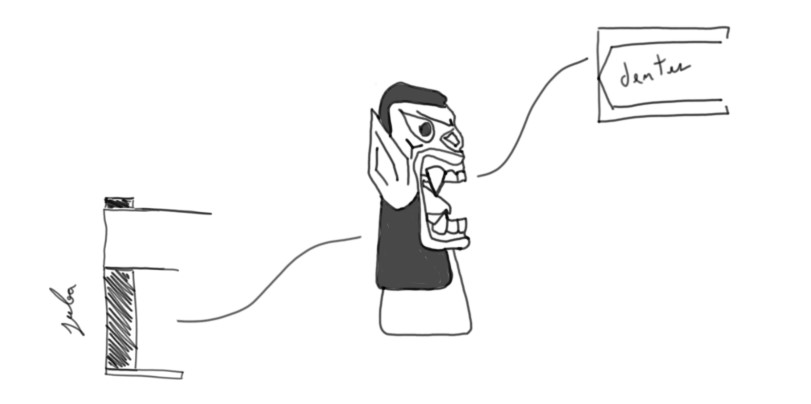
The Exvoto’s extended arm and the support base were the essential elements to make a new interpretation of the handcrafted piece. The edge of the red top and the upper part of the black stem were designed in harmony with the colors that appear in small doses in the sculpture. Simplicity of form is an element present in this approach.
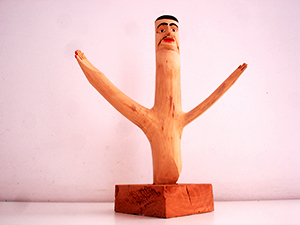
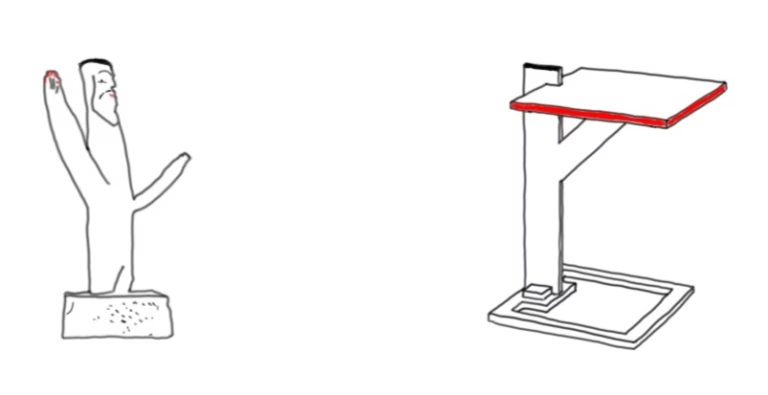
“As a designer and researcher from the Global South, I feel a duty to strengthen relations with the Global North in order to propose and create new approaches to the world of design.”
“Lina Bo Bardi once said that it was possible to observe craftsmanship as an alternative to a design that uses anthropological richness as a basis for creating original artfacts. After ten years, I think I’m able to do it now.”
mf@designmatheus.com
(+55) 31 999235808For more information, please visit www.designmatheus.com